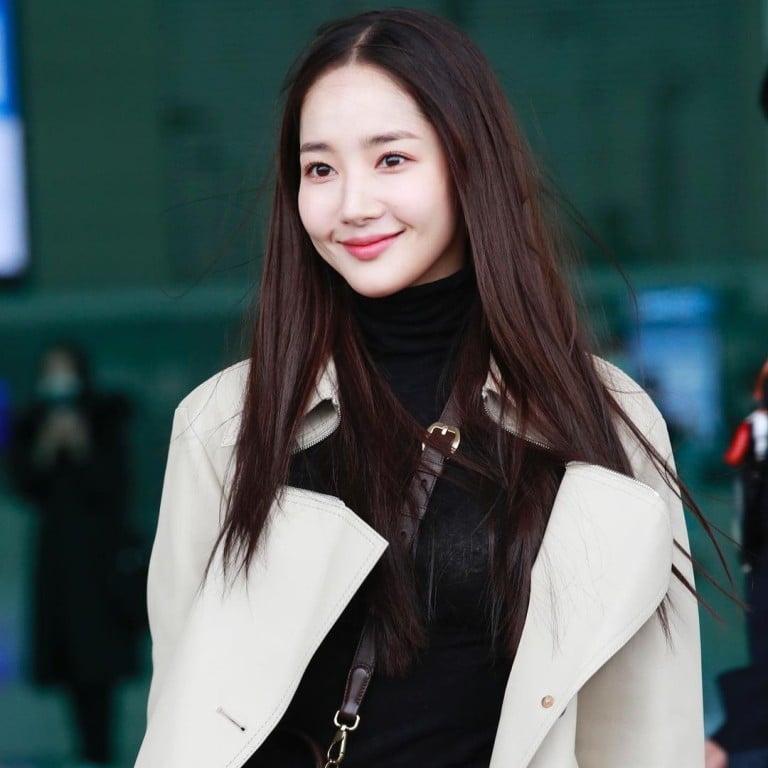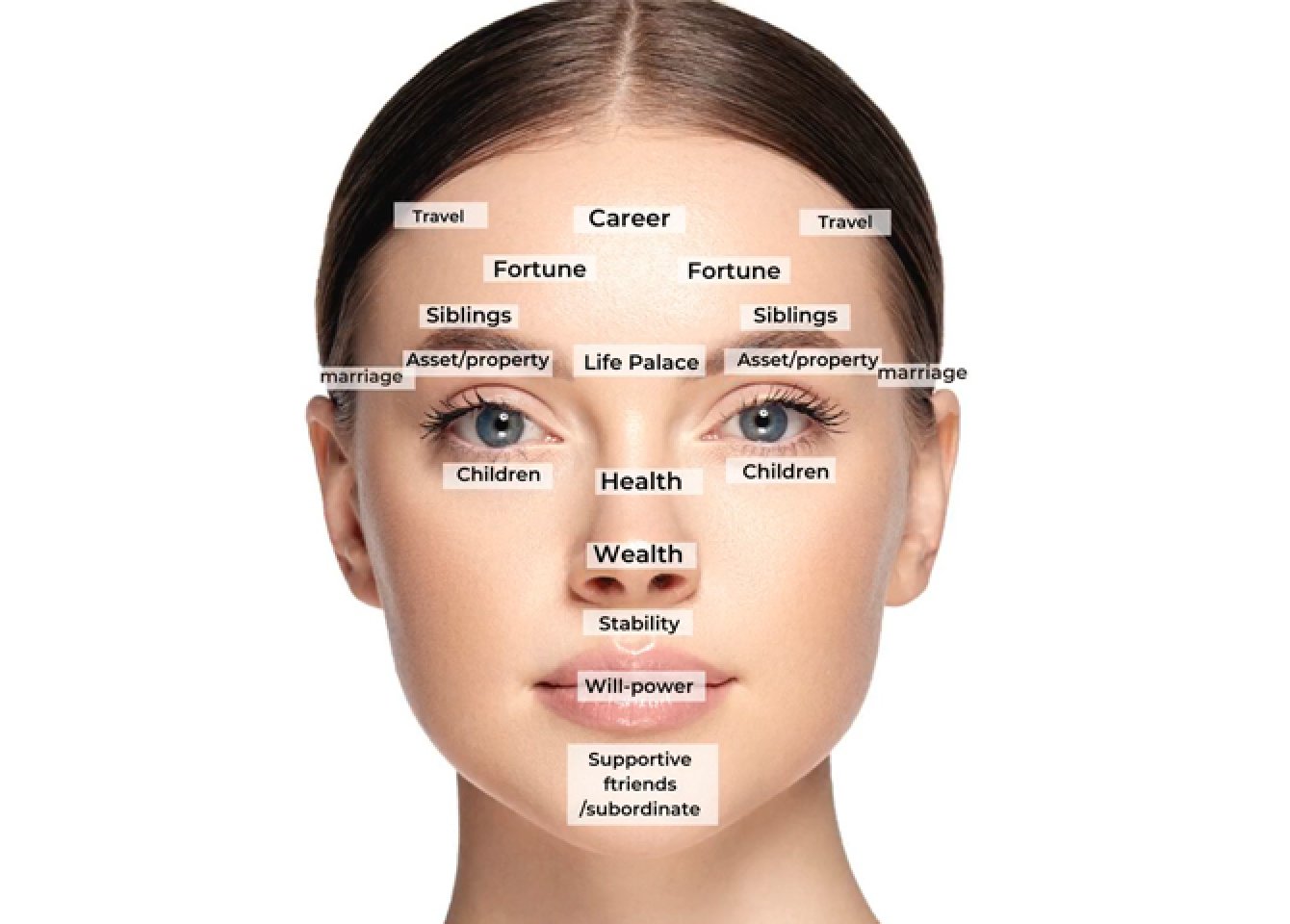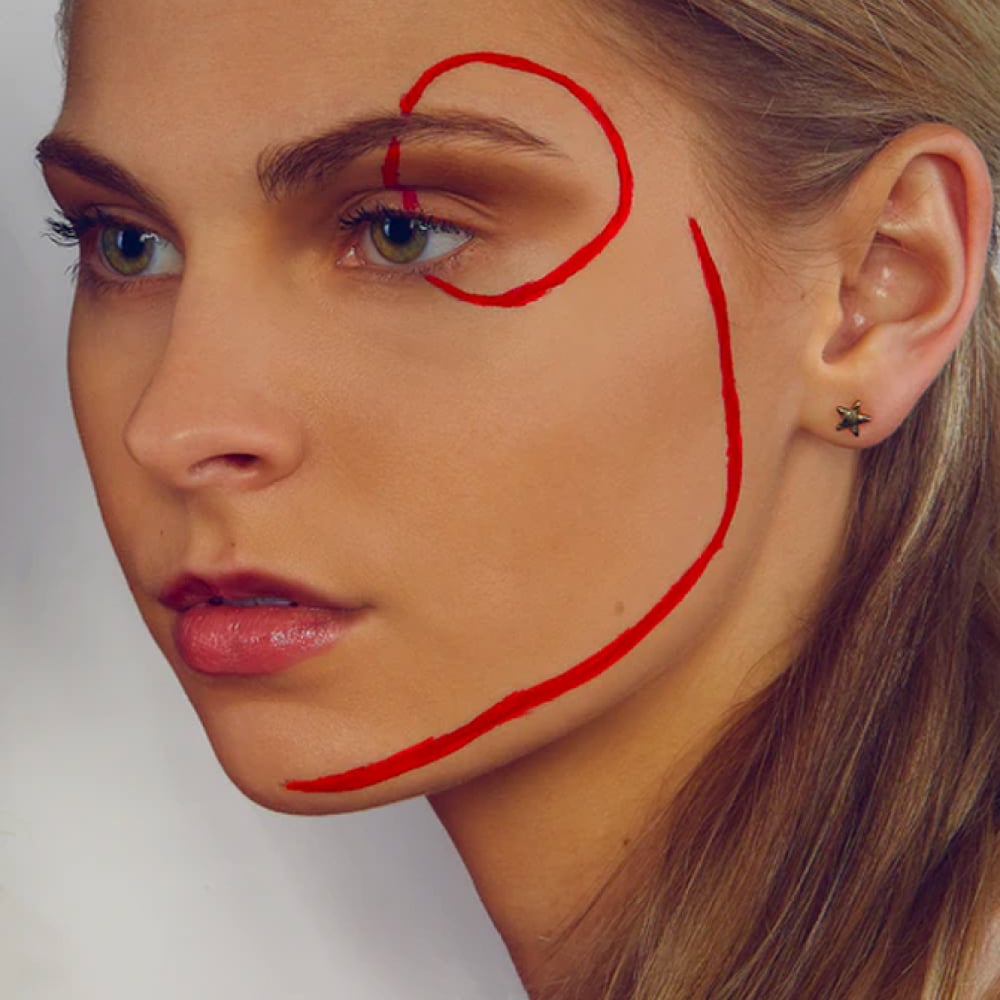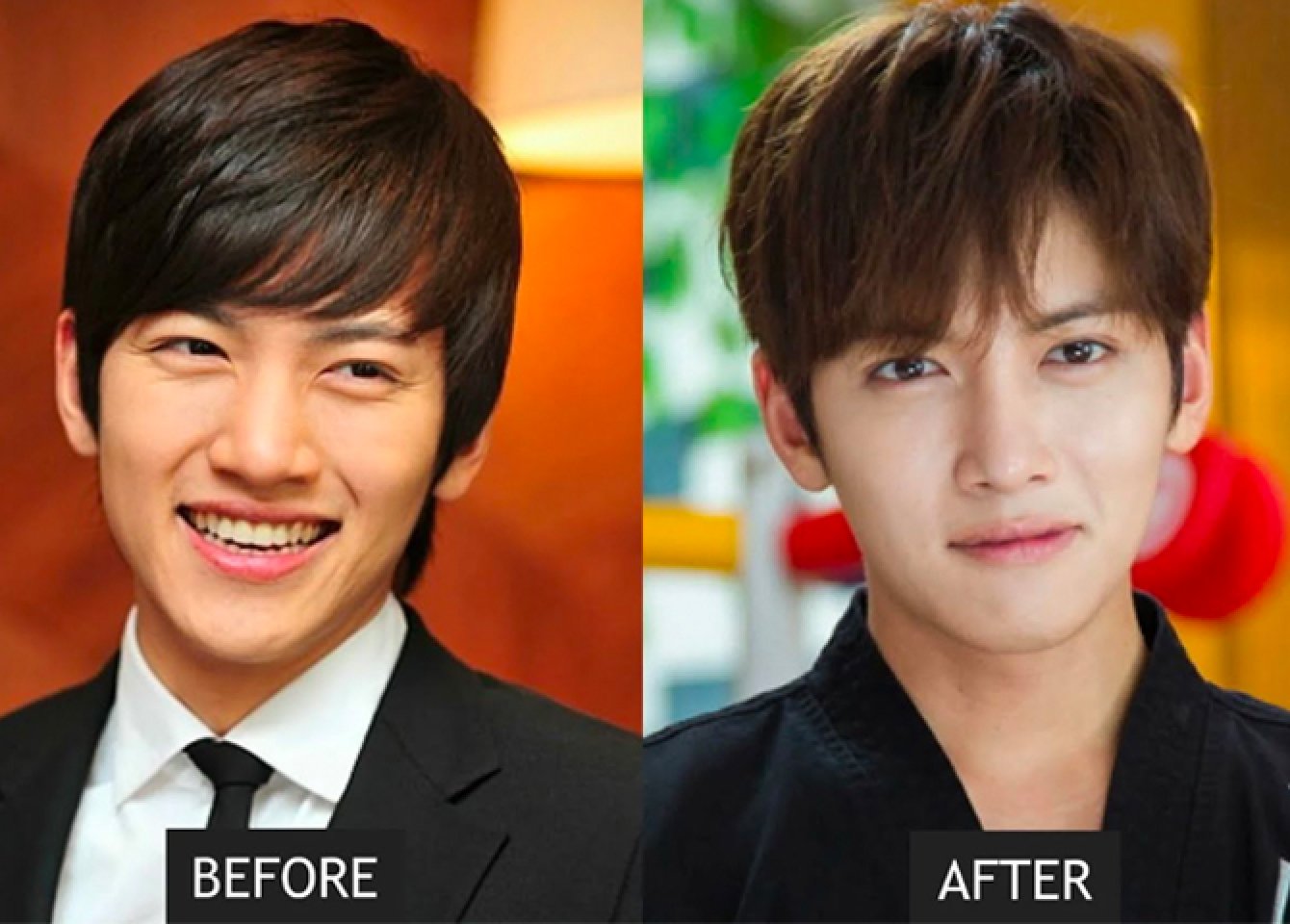What is a ‘lucky face’ according to face feng shui, and how can you get one? Aesthetic medicine might grant you more auspicious features – but they don’t all match current beauty trends

If the eyes are the windows to the soul, your face is likely the map to your destiny – according to feng shui principles, that is. In Chinese geomancy, it is said that every feature, spot, mark and detail on your face bears significance (whether positive or otherwise).
While there is no scientific evidence of face feng shui’s benefits on one’s well-being, a growing crop of facial aesthetic trends are uncannily aligned with face feng shui principles.
We spoke to aesthetic practitioner Dr Karen Po from Astute Clinic in Kuala Lumpur, Malaysia, on how facial aesthetic treatments can help improve one’s face feng shui, and what the hallmark of an “auspicious” face is.

Can you please walk us through what a “lucky face” is? Does each specific facial feature need to look a certain way?
While I am no expert in feng shui, I understand that according to the traditional Chinese practice or face reading (physiognomy), a face can be deemed “lucky” or “unlucky” based on the “mountains” and “rivers” of the face, which indicate wealth and fortune. We all desire a “lucky” face (fu xiang) that draws good fortune and luck. A face that is balanced on both sides indicates that the individual is well aligned to attract prosperity.
On the contrary, signs of misfortune are mostly from moles, spots, coloured marks and indentations. Where they are found on your face can give you an idea at what age you will face these problems or obstacles. Also, another fun fact: did you know that dull ashen skin, darkness or shadows on any part of the face are generally not good chi?
Gene genie: how DNA tests may help you beat disease and lose weight
1. Forehead
The forehead signifies luck sent from heaven and is considered the “first prosperity mountain” of the face. A forehead that is smooth, round, prominent and wide indicates good fortune, power and wealth according to feng shui. The forehead should also be clear of lines, blemishes, spots or moles.
2. Eyes
3. Nose
The nose is another wealth spot of the face signifying one of the “rivers” of the face. An ideal nose is said to be rounder and fleshier for more wealth luck. It should look balanced and smooth, with no spots or blemishes. A woman’s nose is the prime indicator of the potential achievement of her man, particularly with the modern indicators of success – career, wealth and so on. A good nose of a lady that would “prosper” her significant other should be tall and with a decent nose bridge. Any hump is not good sign for marriage; the same goes for spots of any colour on the nose, which could denote signs of obstacles or misfortunes, especially for moles on the tip of nose.
4. Lips
The mouth is the second “river” on the face. According to feng shui, plumper, fuller and rosy lips are deemed lucky for both men and women, and are said to be able to attract wealth. Irrespective of size or shape, the lips should never be dry or chapped as this indicates drying of the “river” and hence loss of luck. As long as the lips are moist, they draw luck and wealth.
5. Chin and jawline
The chin is the second “mountain” of the face. An auspicious chin is one that is fleshier, prominent and well-contoured, as that displays luck and stability during older age, with supportive friends and subordinates. A recessed chin with a jawline that lacks definition is not ideal. In men, a strong jawline also indicates a strong personality, masculinity and authority whereas a receding jawline indicates misfortune and weakness.
A face can be deemed ‘lucky’ or ‘unlucky’ based on the ‘mountains’ and ‘rivers’, which indicate wealth and fortune
6. Cheeks
High cheekbones and fuller cheeks are highly desirable in welcoming greater wealth and prosperity into your life. Well-defined or prominent cheekbones that are fleshy are said to signify authority and success in one’s career.
Interestingly, many of these traditional beliefs do align with what is considered a desirable or attractive according to aesthetic medicine, such as the smooth round forehead, contoured chin, symmetrical or well-balanced face and clear unblemished skin with smooth skin texture.
However, not all the feng shui beauty standards can be applied to everyone. As aesthetic physicians, our role is to assess the individual’s face and bone structure to determine what characteristics or features can or should be enhanced (or downplayed), in order to achieve a result that is both aesthetically pleasing and desirable to the individual.

Does the skin on the face also play a role in face feng shui, for instance crystal clear skin vs skin with blemishes, marks or scarring?
What kind of aesthetic treatments can help improve face feng shui?
There are several aesthetic treatments in the market that can improve your face feng shui or get you your desired facial features, ranging from minimally invasive to surgical treatments. Minimally invasive treatments, such as thread lifts, dermal fillers and lasers, are becoming increasingly popular alternatives to surgical treatments or implants, as they are less invasive, have less downtime and provide greater flexibility in the long run.
As aesthetic physicians, our role is to assess the individual’s face and bone structure to determine what characteristics or features can or should be enhanced (or downplayed)
The type of treatment that I would recommend is based on the pathophysiology of the patient’s concerns and desired outcome. For example, to attain a smooth, round and wrinkle-free forehead, we can use botulinum toxins (Botox) to relax the tense, hyperkinetic muscles, or a hyaluronic acid (HA) filler like Juvederm to volumise and contour the forehead, smoothen fine lines and hydrate the skin.
On the other hand, areas of the face that require sculpting may benefit from a filler like Juvederm Volux, which we typically use to contour the chin and jawline to create a more attractive, slimmer and defined face shape. For moles and blemishes, we can use lasers to address them while colour, tone and texture of the skin can be addressed with microinjections and lasers.
Are popular aesthetic trends nowadays also considered “auspicious” in face feng shui? Examples: V-shaped chin, a narrow and high nose bridge, thick lips
Let’s take the chin for example: the V-shaped visage with a pointy chin for women has become extremely popular among the aesthetic and surgical patients in recent years. It is a beauty trend, but is not an auspicious look according to the feng shui principle. For a “lucky face”, a fleshy face with round plump chin on a woman is said to be bright, cheerful and have better luck. If a woman wants to make her face too thin or her chin too sharp, not only it may not look aesthetically pleasing, but in feng shui it weakens the energy of the face and may not be able to hold hers and her partner’s luck.

That being said, for somebody who has a small, weak chin, then it has to be addressed for a more balanced, sophisticated look while improving the feng shui.
I have a male patient in his early forties who had a short, recessed chin, but he came in requesting a tall, sharp and defined nose bridge as he believed that his luck and fate could be improved. But from my perspective, restoring the proportion and balance of his face is necessary in order to maintain a more harmonious look.
I also had a female patient in her 50s who had face fillers injected based on face feng shui principles. Her temple and cheeks were excessively filled until they looked masculine, resulting in an awkward-looking and puffy visage. Too much of a good thing can be bad!
This article originally appeared on Buro Malaysia.
Want more stories like this? Sign up here. Follow STYLE on Facebook, Instagram, YouTube and Twitter.

- Traditional Chinese face reading, or physiognomy, stipulates that certain facial features bring good fortune and prosperity – here’s why
- K-pop idols sparked a trend for double eyelids and V-shaped chins – which can be achieved with cosmetic surgery – but they might not lead to a ‘harmonious’ face